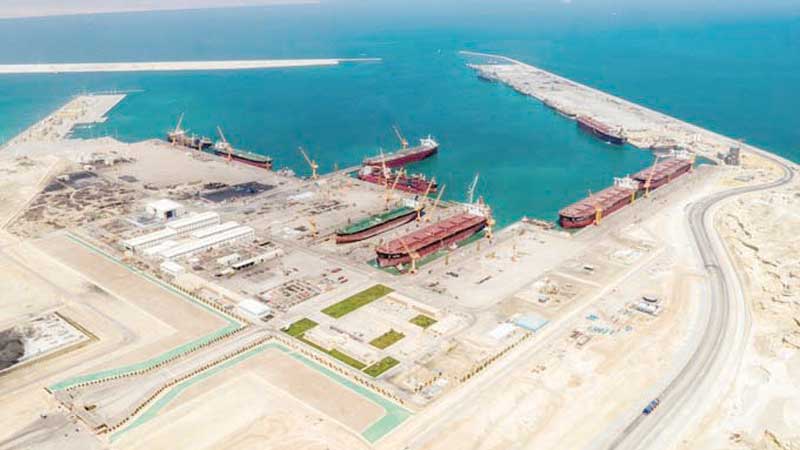Vision 2040: Blossoming future for Oman
Published: 09:11 AM,Nov 19,2020 | EDITED : 07:02 PM,Feb 15,2025


1542184
Developed in line with the Royal Directives of late His Majesty Sultan Qaboos, Oman’s Vision 2040 is the gateway for the Sultanate to join the orbit of advanced nations under the astute leadership of His Majesty Sultan Haitham bin Tarik.
And the Vision 2040 is a guide and key reference for planning activities in the next two decades. And the strategy in the vision is based on inputs from Omani individuals, businesses and stakeholders representing all facets of the society.
The recent restructuring of the government apparatus through the promulgation of different Royal Decrees has been identified as a requirement for the implementation of Vision 2040.
“This year, the Sultanate of Oman has taken important steps to restructure and modernise its administrative apparatus, in support of its current phase of economic development, within Oman Vision 2020-2040”, said Sayyid Badr bin Hamad al Busaidy, Foreign Minister, during the 75th session of the United Nations General Assembly.
Royal Decree 100/2020 promulgated the establishment of the Implementation of Vision 2040 and Follow-up Unit which falls under the purview of the Council of Ministers. The unit replaces the Implementation Support and Follow-up Unit which was within the remit of the Diwan.
The move to have the newly created Unit falling under the Council of Ministers allows for closer oversight on the implementation of the Vision 2040 and demonstrates the seriousness with which the Vision 2040 project is being taken.
Oman has been an active participant in international and regional fora that produced the Sustainable Development Goals 2030. The Sultanate of Oman has sought to translate its commitments into key components of the ninth five-year development plan and Oman Vision 2020 to 2040.
“Oman intends to continue to work to achieve the economic, social and environmental dimensions of Sustainable Development Goals within the specified time frame”, Sayyid Badr said.
While foreseeing the future progress and development aligned with an ambitious work system, the blueprint targets a number of economic indicators including a commitment to raise Real GDP per capita by 90 per cent and Real GDP Growth by five per cent annually during the next 20 years.
It also targets to enhance the contribution of Foreign Direct Investment (FDI) to GDP to 10 per cent. Furthermore, it envisions the share of non-oil activities to grow to more than 90 per cent of GDP, as well as a 40 per cent contribution to job creation by the private sector.
For this, the non-oil sectors are expected to contribute to 93 per cent of GDP, by focusing its diversification strategy on shifting its economy towards five critical sectors: tourism, logistics, manufacturing, fisheries and mining, as identified in the Ninth Five-Year Development Plan.
Achieving the strategic directions and goals of Oman Vision 2040 is not the responsibility of the government alone. Citizens, private sector and civil society organisations also have a role to play.
Community participation was present throughout the stages of the Vision development, across the different governorates of Oman, thus embodying the consensus between the political leadership and all segments of the community to create gradual transformation across the board.
In the Vision, a favourable environment will be created to attract talents in the labour market.
This Vision lays down the foundations for an empowered knowledge-based society whose members are creative, proud of their identity and culture.
They are also committed to their civic duties and values and living in dignity and sustained well-being. It also aims at creating a society endowed with a leading healthcare system having an active lifestyle.
The members of the society should also have inclusive education for lifelong learning to develop skills for the future, promote scientific research, build national capabilities and achieve economic growth and social well-being.
The vision also foresees a society with flexible yet strong agencies, all-encompassing governance, effective supervision, swift justice, efficient performance, and active and ever renewing media, aided by an empowered civil society that participates in all aspects of life, towards higher levels of human development.
Smart and sustainable cities are built with advanced IT infrastructure; and socio-economic prosperity and social justice are nurtured in urban and rural communities.
SAMUEL KUTTY
@samkuttyvp
